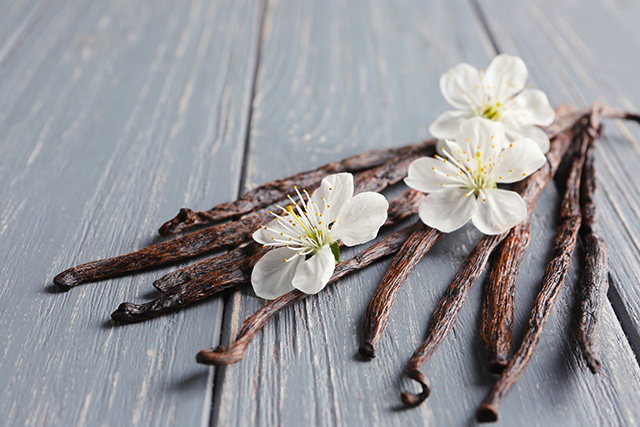
The investigative team chose vanillic acid because previous studies showed that it was capable of estrogenic activity. "Hence we hypothesize that [vanillic acid] may favor the anti-osteoporotic property by acting as estrogen analog. Since, estrogen plays a critical role in maintaining bone mineralization and remodeling (turnover) process via regulating the balance between osteoclast and osteoblast. Hence, the present experiment was designed to evaluate the anti-osteoporotic property of [vanillic acid] in [a] ovariectomy-induced rat model which mimic postmenopausal osteoporosis," they wrote in their study.
Forty female rats were utilized. The animals underwent either bilateral laparotomies or bilateral ovariectomy. The rats that the researchers performed bilateral ovariectomies on were divided into three groups:
- One group was given 50 mg/kg of vanillic acid a day for 12 weeks;
- Another was administered 100 mg/kg for the same duration; and
- The last group wasn't given anything.
In addition to being supplemented with vanillic acid, or not receiving any, the rats were weighed every week leading up to the final portion of the experiment. Once the 12 weeks had passed, the researchers collected urine and blood samples from all the rats, as well as their femurs and uteri.
To assess the bone quality of the femurs, the researchers measured bone mineral content, bone mineral density, and bone biomechanical strength. The rats who'd undergone bilateral ovariectomies had significantly reduced bone mineral content and bone mineral density. By contrast, the rats who'd been given either 50 mg/kg or 100 mg/kg of vanillic acid had markedly higher levels of bone mineral density and content. Subjecting the femurs to three-point-bend testing revealed that those from the vanillic acid groups had higher levels of “energy, maximum load, stiffness, and maximum stress.”
The researchers hypothesized that the increased bone rigidity and strength was primarily due to vanillic acid acting on the rats' estrogen receptors and stimulating the production of osteoblasts. This greatly enhanced both bone mass and bone quality, according to the researchers.
Thus, they concluded: "The present study clearly showed that treatment with VA 50 and 100 substantially abolish the body weight gain, bone turnover markers as in [bilateral overiectomy] rats. In addition, the [bone mineral density], [bone mineral content], and biomechanical stability or strength were considerably ameliorated on supplementation with 50 and 100 mg of [vanillic acid] well as inflammatory markers."
Both dosages of vanillic acid yielded positive results, but the researchers noted that the greater amount had the most significant anti-osteoporotic activity. "Therefore, VA can be recommended as an alternative therapy for treating postmenopausal osteoporosis," they added. (Related: Osteoporosis – This Silent Disease Affects More Than Just Older Women.)
Despite the promise shown by vanillic acid in potentially treating postmenopausal osteoporosis, the researchers acknowledged that their study had a number of limitations. For one, they focused exclusively on the femur and didn't take other bones, such as the tibia or vertebra, into consideration. Furthermore, the "micro-architecture of the femur" was not subject to more extensive scrutiny. These limitations will be accounted for in future studies.
Fast facts on vanillic acid
- Vanillic acid is the product that results from ferulic acid converting into vanillin, the primary component of vanilla extract.
- Female ginseng (Angelica sinensis) is a Chinese herb that has the highest amount of naturally occurring vanillic acid among plants. Vanllic acid can also be obtained from açaí oil and argan oil.
- Vanillic acid possesses a pleasantly creamy odor that has made it quite popular as a scent agent.
- This phenolic acid can be found in the urine of people who've consumed tea, chocolate, coffee, and any vanilla-flavored sweets.
Visit NaturalCures.news to read up on more natural medicines and therapies.
Sources include:
Journals.SFU.ca/AfricanEM/index.php/AJTCAM
Please contact us for more information.























